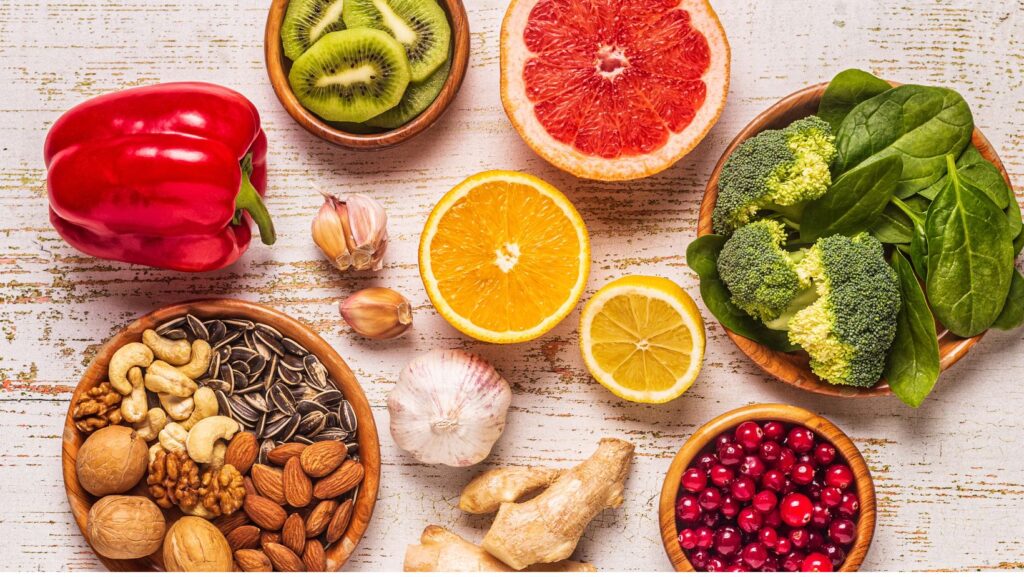Athletes across all levels understand that nutrition supports strength, endurance, recovery, and overall performance. The right foods enhance energy production, reduce inflammation, and promote muscle repair. For elite competitors in the NFL, NBA, and global soccer, choosing scientifically supported foods can be the difference between average results and peak performance. Understanding how these foods work in the body helps athletes make informed decisions about their daily meals and training routines.
In recent years, fans have become more interested in how athletes fuel themselves, especially with the rise of fantasy and NFL betting platforms like DraftKings, where player performance has a direct impact on outcomes. This increased attention highlights how closely diet and performance are linked and why professional athletes invest heavily in nutrition planning.
How Food Influences Athletic Output
Performance nutrition focuses on how food supports key physiological systems. Carbohydrates fuel the muscles with glycogen, which is the primary energy source during high-intensity activity. Proteins repair muscle fibers after training sessions. Healthy fats provide long-lasting energy and support hormone production. Vitamins, minerals, and antioxidants protect cells from oxidative stress, which can affect reaction time, endurance, and recovery.
The body uses these nutrients in highly specific ways. For example, carbohydrates break down into glucose, which the body stores in muscles and the liver as glycogen. During sprints or explosive movements, the body draws heavily from these stores. Once depleted, fatigue sets in quickly. Foods rich in high-quality carbohydrates, such as oats, brown rice, and sweet potatoes, help replenish glycogen and maintain steady performance.
Proteins provide the amino acids needed for muscle construction and repair. After intense workouts, muscle fibers develop micro tears, and amino acids fill these gaps to build stronger tissue. Lean meats, eggs, fish, dairy, beans, and lentils are essential sources. For athletes who train daily, protein timing matters. Consuming protein within about 30 to 60 minutes after workouts can accelerate recovery by enhancing muscle protein synthesis.
Healthy fats, including omega-3s, support joint health, reduce inflammation, and provide steady energy during long-duration activities. Foods like salmon, walnuts, chia seeds, and avocados offer these benefits. For soccer players who run several miles each match or NBA players who endure constant physical contact, these anti-inflammatory properties help protect joints and muscles.
Foods Proven to Boost Performance
1. Bananas
Bananas contain natural sugars, potassium, and carbohydrates that help stabilize blood sugar levels and support muscle contraction. Potassium also helps reduce cramps, making bananas ideal for halftime or pre-workout snacks.
2. Leafy Greens
Spinach, kale, and collard greens supply iron, calcium, and antioxidants. Iron supports oxygen transport to muscles, while antioxidants help limit inflammation from intense exercise.
3. Salmon
Salmon is rich in omega-3 fatty acids, which reduce inflammation and improve cardiovascular health. NFL players often include fatty fish in weekly meal plans to support recovery between games.
4. Berries
Blueberries, strawberries, and blackberries contain antioxidants that protect muscle cells from oxidative stress. Research shows that berry consumption can improve endurance and shorten recovery time.
5. Quinoa
Quinoa provides complete protein and complex carbohydrates, giving both immediate and sustained energy. It is a popular choice among soccer players preparing for long-distance running.
6. Greek Yogurt
High in protein and probiotics, Greek yogurt supports digestion and muscle repair. When combined with fruit or honey, it becomes a balanced pre or post-workout snack.
Food Combinations That Work Well Together
The most effective nutrition strategies often combine complementary foods. Pairing certain nutrients can increase absorption and improve performance.
Carbohydrates + Protein
This combination supports both energy and recovery. Examples include chicken with rice, yogurt with fruit, or peanut butter with whole-grain toast. NFL and NBA nutritionists recommend this pairing after workouts to restore glycogen and repair muscles.
Iron + Vitamin C
Iron-rich foods like spinach or lentils become more effective when eaten with vitamin C sources such as oranges or tomatoes.

This boosts iron absorption and enhances oxygen flow, which is critical for endurance athletes.
Healthy Fats + Vegetables
Fat helps the body absorb fat-soluble vitamins such as A, D, E, and K. A salad with avocado or olive oil, or vegetables paired with nuts, offers improved nutrient uptake.
Electrolytes + Carbohydrates
During heavy sweating, electrolytes such as sodium, potassium, and magnesium must be replenished. Pairing electrolytes with carbohydrates, like a banana with a sports drink or coconut water with trail mix, maintains performance during long matches or training sessions.
How Professional Athletes Benefit
NFL players rely on quick bursts of power, meaning glycogen loading and protein intake are essential. They often consume lean meats, complex carbohydrates, and electrolyte-dense snacks before games. Anti-inflammatory foods like salmon and berries help manage the physical toll of repeated collisions.
NBA athletes face long schedules, travel demands, and heavy conditioning routines. Their diets focus on hydration, electrolytes, and meals that stabilize blood sugar. Smoothies, whole grains, and yogurt bowls are common choices to maintain consistent energy.
Soccer players require cardiovascular endurance and must recover quickly between matches. They benefit from carbohydrate-rich foods like pasta, quinoa, and bananas, coupled with lean proteins and iron-rich greens to support oxygen transport.
The science behind performance nutrition shows that the right foods are powerful tools for athletes. Whether aiming for explosive strength, long-lasting endurance, or rapid recovery, choosing nutrient-dense foods and smart combinations can elevate performance. For professionals in the NFL, NBA, or global soccer, these dietary strategies support the physical demands of elite competition. For everyday athletes, understanding these same principles can bring meaningful improvements to training, energy, and overall health.
